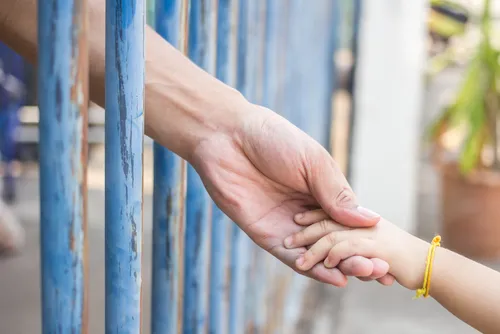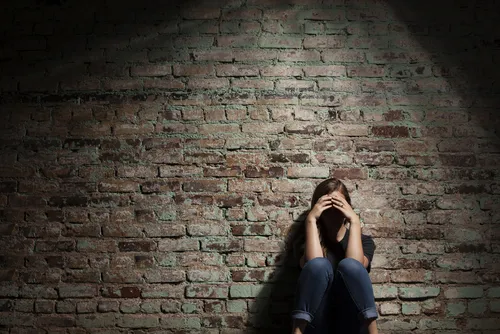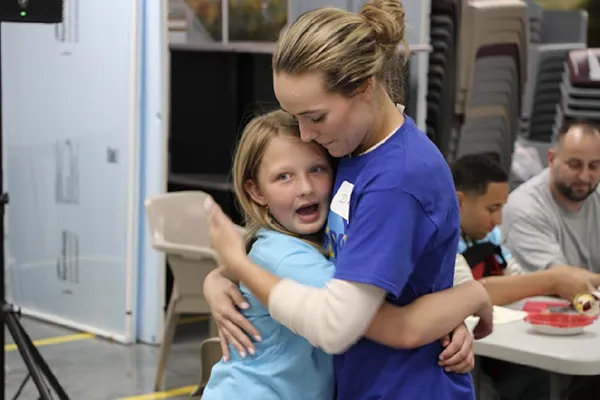When a parent is taken away to jail, the impact on their children is immediate and devastating. The world as you knew it shatters, leaving behind a landscape of confusion and sorrow. At 18, I experienced this firsthand when my father was incarcerated. The sense of helplessness that engulfed me was unlike anything I had ever felt. It was as if the ground beneath my feet had vanished, and I was left suspended in a state of emotional free fall. Here, I share my journey through that tumultuous time and offer insights on how to find strength and hope when faced with such a profound loss.
The Avalanche of Emotions
The day my father was taken away is etched in my memory. I felt like my world had shattered into a million pieces. The person who had always been my pillar of strength was suddenly gone, and I was left to pick up the pieces. The initial shock gave way to a flood of emotions: anger, sorrow, shame, and a deep, pervasive sense of helplessness. In the beginning, it was difficult to get out of bed, to face the day, or even to look people in the eye. The weight of my father’s absence was a constant, aching reminder that nothing would ever be the same. Every smile felt forced, every conversation a minefield.
The Heavy Burden of Stigma
One of the most challenging aspects was dealing with the stigma. People often don’t know how to react or what to say when they find out a parent is incarcerated. This leads to awkward silences, pitying looks, and sometimes outright avoidance. It felt as though I was wearing a scarlet letter, my identity forever changed in the eyes of those around me.
The whispers and the sideways glances added to my burden. I was afraid that everyone judged me by my father’s actions, and it felt deeply unfair. The community’s perception added layers to my pain, making the already heavy load feel almost unbearable.
Finding a Flicker of Light
In the midst of this darkness, it’s crucial to find glimmers of light. For me, these came in the form of small acts of kindness from friends and unexpected moments of understanding from strangers. There were days when a simple, genuine smile or a kind word from someone who knew nothing about my situation felt like a lifeline.
The Power of Connection
Feeling isolated and helpless can be paralyzing. But finding and nurturing connections can help you regain your footing.
Here’s how I started to climb out of the abyss:
- Reaching Out for Support: Initially, it was hard to open up about my father’s incarceration. But when I finally did, I found that people were more understanding than I expected. I joined support groups where I met others who were going through similar experiences. Sharing my story and hearing theirs created a sense of solidarity that was incredibly healing.
- Maintaining Communication with My Parent: Staying in touch with my father was both painful and comforting. His letters and phone calls were reminders that he was still part of my life, even if he wasn’t physically present. These interactions helped me maintain a connection and gave me a sense of purpose.
- Therapy and Counseling: Seeking professional help was a turning point for me. Therapy provided a safe space to express my emotions and fears without judgment. My therapist helped me develop coping mechanisms and strategies to deal with the overwhelming sense of helplessness.
Embracing Personal Growth
Amid the turmoil, I began to focus on personal growth. Setting small, achievable goals helped me regain a sense of control over my life. I threw myself into my studies and hobbies, finding solace in the things I could control. This not only distracted me from my pain but also helped me rebuild my self-esteem.
Advocacy and Making a Difference
Turning my pain into purpose became a powerful way to combat helplessness. Through my initiative, “The Silent Victims: Guiding and Empowering Youth of Incarcerated Parents,” I found a way to channel my experiences into helping others. Advocacy and raising awareness became a source of strength for me, allowing me to transform my personal struggle into a force for positive change.
Holding On to Hope
Hope is a fragile but essential lifeline. It’s what kept me going during the darkest times. I held on to the belief that things could get better, that the pain wouldn’t last forever. Over time, this hope grew stronger, helping me to see a future where my father’s incarceration didn’t define me or my family.
Conclusion: Strength in Vulnerability
Feeling helpless when a parent is in jail is an incredibly raw and vulnerable experience. But in that vulnerability lies the seed of strength. By reaching out for support, maintaining connections, focusing on personal growth, and finding purpose in advocacy, you can navigate through the storm. Your experiences, though painful, can become ab source of resilience and inspiration. Remember, you are not alone, and there is always a flicker of light, even in the darkest times.






